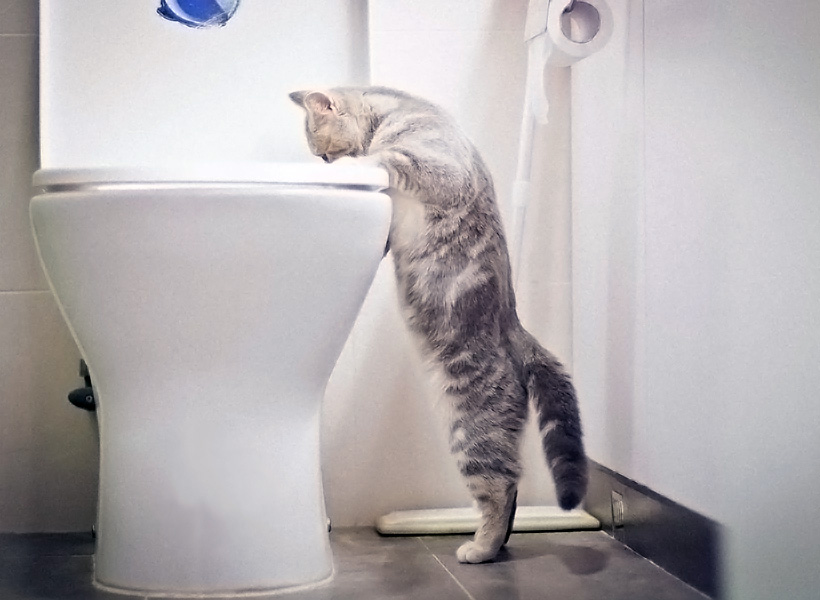Why Flushing Cat Poop Down Your Toilet Isn't a Good Idea - Advice for Proper Disposal
Why Flushing Cat Poop Down Your Toilet Isn't a Good Idea - Advice for Proper Disposal
Blog Article
How do you actually feel when it comes to How to Dispose of Cat Poop and Litter Without Plastic Bags?

Introduction
As cat proprietors, it's necessary to be mindful of exactly how we throw away our feline pals' waste. While it might appear convenient to purge pet cat poop down the toilet, this technique can have damaging effects for both the environment and human health and wellness.
Ecological Impact
Purging feline poop introduces hazardous pathogens and bloodsuckers right into the water, posing a significant threat to water ecosystems. These pollutants can negatively influence aquatic life and compromise water top quality.
Wellness Risks
In addition to ecological worries, flushing feline waste can likewise position health and wellness threats to humans. Pet cat feces may contain Toxoplasma gondii, a parasite that can create toxoplasmosis-- a potentially severe ailment, specifically for expecting ladies and individuals with damaged body immune systems.
Alternatives to Flushing
Luckily, there are safer and more accountable methods to deal with pet cat poop. Take into consideration the following alternatives:
1. Scoop and Dispose in Trash
One of the most common method of dealing with feline poop is to scoop it right into a naturally degradable bag and toss it in the trash. Make certain to utilize a specialized clutter scoop and deal with the waste promptly.
2. Usage Biodegradable Litter
Go with biodegradable pet cat clutter made from products such as corn or wheat. These clutters are environmentally friendly and can be securely taken care of in the garbage.
3. Hide in the Yard
If you have a yard, take into consideration burying pet cat waste in a marked area away from vegetable yards and water sources. Make certain to dig deep sufficient to stop contamination of groundwater.
4. Install a Pet Waste Disposal System
Purchase an animal waste disposal system particularly developed for feline waste. These systems utilize enzymes to break down the waste, reducing odor and environmental impact.
Conclusion
Accountable animal possession extends past supplying food and sanctuary-- it also involves proper waste monitoring. By refraining from purging pet cat poop down the toilet and choosing different disposal techniques, we can minimize our environmental impact and protect human health.
Why You Should Never Flush Cat Poop Down the Toilet
A rose by any other name might smell as sweet, but not all poop is created equal. Toilets, and our sewage systems, are designed for human excrement, not animal waste. It might seem like it couldn’t hurt to toss cat feces into the loo, but it’s not a good idea to flush cat poop in the toilet.
First and foremost, assuming your cat uses a litter box, any waste is going to have litter on it. And even the smallest amount of litter can wreak havoc on plumbing.
Over time, small amounts build up, filling up your septic system. Most litter sold today is clumping; it is made from a type of clay that hardens when it gets wet. Ever tried to scrape old clumps from the bottom of a litter box? You know just how cement-hard it can get!
Now imagine just a small clump of that stuck in your pipes. A simple de-clogger like Drano isn’t going to cut it. And that means it’s going to cost you big time to fix it.
Parasitic Contamination
Believe it or not, your healthy kitty may be harboring a nasty parasite. Only cats excrete Toxoplasma in their feces. Yet it rarely causes serious health issues in the cats that are infected. Most people will be fine too if infected. Only pregnant women and people with compromised immune systems are at risk. (If you’ve ever heard how women who are expecting are excused from litter cleaning duty, Toxoplasma is why.)
But other animals may have a problem if infected with the parasite. And human water treatment systems aren’t designed to handle it. As a result, the systems don’t remove the parasite before discharging wastewater into local waterways. Fish, shellfish, and other marine life — otters in particular — are susceptible to toxoplasma. If exposed, most will end up with brain damage and many will die.
Depending on the species of fish, they may end up on someone’s fish hook and, ultimately on someone’s dinner plate. If that someone has a chronic illness, they’re at risk.
Skip the Toilet Training
We know there are folks out there who like to toilet train their cats. And we give them props, it takes a lot of work. But thanks to the toxoplasma, it’s not a good idea.

I was made aware of that article about How to Dispose of Cat Poop and Litter Without Plastic Bags through an associate on a different blog. Sharing is nice. Helping others is fun. Kudos for your time. Please check up our blog back soon.
Call Today Report this page